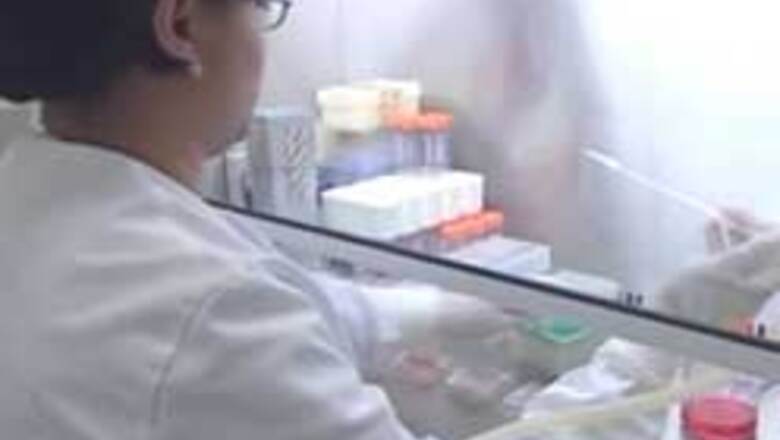
views
New Delhi: Scientists in Britain have been given the green light in principal to create human-animal embryos created for medical research.
Capping a month-long scientific and ethics review, British regulators said on Thursday that they are prepared to allow the creation of embryos that are part human and part animal for use in medical experiments.
However, approval for scientists to use such embryos will be granted only on a case-by-case basis.
The ruling by the Human Fertilisation and Embryo Authority, which oversees human embryo research in Britain, means that two previously submitted proposals to create hybrid embryos on hold while the agency considered whether it would even look at them will be evaluated in detail. Decisions on those proposals, widely anticipated to be positive, are expected in November.
The prime goal of the research is to create embryos from which embryonic stem cells that may be medically useful can be extracted. The embryos would be made by injecting human DNA into cow or rabbit eggs whose own DNA has been largely, but not fully, removed.
Until now, scientists making human embryos for research have generally used human eggs from women treated with hormones, a procedure that poses medical risks and so raises ethical concerns.
But opponents have argued that it is no less unethical to create partly human embryos solely to harvest their stem cells, and some opponents have raised the specter of rogue scientists growing the embryos into weird human-animal creatures.
The embryo authority acknowledged those concerns and promised to watch the field closely.
"This is not a total green light for . . . hybrid research, but recognition that this area of research can, with caution and careful scrutiny, be permitted," the agency said in a statement.
Some organisations vocally opposed such experiments, as did the nation's chief medical officer, citing a lack of public support. But the British Medical Association and Britain's major science funders, the Medical Research Council and the Wellcome Trust, lobbied hard for a positive ruling, along with several Nobel laureates and others.
Although more than half of British adults recently surveyed said they support research using human embryos, 35 percent support the creation of embryos that are "mostly human and a small amount of animal genetic materials" -- the kind of research being proposed for now -- and nearly half said they are opposed.
Many expressed concern that the work constitutes meddling with nature and might lead to more troubling experiments. Others said they fear that some hybrid embryos -- which scientists call chimeras, after the mythical Greek creature with a lion's head, a goat's body and a serpent's tail -- might be transferred to women's wombs, where they might develop.
British regulations demand that all human embryos used in research be destroyed within 14 days after their creation. Supporters also point to research suggesting that chimeric embryos have little potential to survive beyond the earliest stages of development because of incompatibilities between their human and animal strands of DNA.
(With agency inputs)




















Comments
0 comment